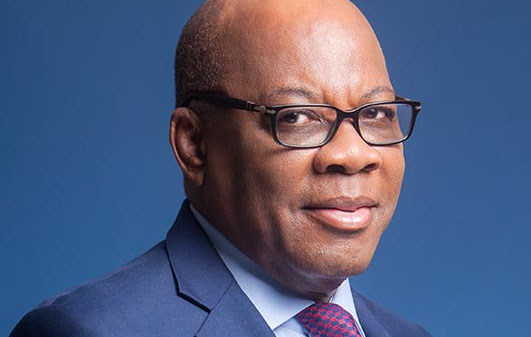Medical interventions, especially those led by Nigerian professionals in the Diaspora, which were once a lifeline for underserved communities, are now witnessing a decline. While these overseas contributions were never a substitute for systemic reforms, their glaring absence signals further deepening cracks in the nation’s health landscape, IJEOMA NWANOSIKE reports.
Over the years, medical interventions and aids have significantly cushioned Nigeria’s healthcare system, enhancing the sector’s efficiency and the nation’s well-being, especially in underserved communities.
These medical outreach programmes, through the efforts of abroad-based medical experts of Nigerian descent, shielded many individuals and families from heavy financial burden, and generally benefited millions of Nigerians across the spectrum.
These initiatives, which gained momentum in the late 1990s and peaked in the early 2010s, were driven by strong international partnerships, funding from donor agencies, and the dedication of these Nigerian specialists overseas, who saw the need to give back to their country.
Importantly, they addressed a broad variety of health challenges ranging from cataract removal, orthopaedic surgeries, maternal health programmes, mass immunisation campaigns, up to complex surgeries like open heart operations. Beyond providing immediate healthcare relief, they also contributed to local capacity-building by offering training for Nigerian doctors and nurses.
Notably, organisations such as the Nigerian-American Medical Foundation International (NAMFI); the Association of Nigerian Physicians in the Americas (ANPA), and the Medical Association of Nigerians Across Great Britain (MANSAG) were instrumental in these efforts functioning as charitable, tax-exempt non-profits under the Companies and Allied Matters Act (CAMA) of Section 23(1) of the Companies Income Tax Act (CITA).
In the last two decades, these medical outreaches have petered out even as support from these organisations has also been waning. In cases where many have ceased their annual activities, they are pointing an accusing finger at the government’s inconsistent role in healthcare reforms. While policies such as tax waivers and streamlined visa processes have the potential to encourage more medical interventions and international collaborations, their alleged irregular and unreliable implementation has contributed to the broader decline of these philanthropic healthcare initiatives across the country.
Apart from the role played by inconsistent healthcare reforms in ensuring the decline of this abroad-based mission, initiatives such as tax waivers and streamlined visa processes were intended to encourage more medical interventions and foster international collaborations, but their irregular and unreliable implementation has weakened these efforts.
Bureaucratic bottlenecks, such as difficulties in securing permits and excessive import tariffs on medical equipment, have hampered the effectiveness of medical missions, as well as contributed to a broader decline of these initiatives.
Additionally, rising insecurity, including escalating incidents of kidnapping and regional instability, has discouraged many foreign-trained medical professionals from participating in healthcare initiatives within the country.
Consequently, rural communities and underserved populations that were previously reliant on these free medical missions are now left with limited or no access to specialised care, further straining the country’s already overstretched public healthcare system.
But while diaspora-led medical missions played a supportive role in the sector, experts have consistently cautioned that overseas interventions do not constitute a lasting solution to the country’s myriad healthcare challenges. They warned that unless the country addresses the root causes of its healthcare crisis, the country will continue to face systemic collapse.
A former Vice President of NAMFI and the Managing Director of ROA Specialist Hospital, Dr Abiola Ajayi, attributed the decline in medical missions and aid to a range of complex and interrelated issues.
In an interview with The Guardian, Ajayi explained that funding constraints and global economic hardship were major contributors to the decline, adding that economic downturns, both locally and internationally, have made it more difficult for diaspora professionals to self-fund medical missions.
Ajayi, who further noted that governmental and bureaucratic obstacles had created significant barriers, pointed out that the increasing difficulty in securing permits, waivers, and clearances for medical missions had discouraged many diaspora-led organisations from pursuing the laudable gesture. Customs delays and high import tariffs on donated medical equipment, he added, are also compounding the problem.
He highlighted the lack of consistent government support and insufficient local infrastructure as hindrances to successful medical interventions. The ongoing brain drain of Nigerian healthcare professionals, according to him, has also reduced the pool of local collaborators available to facilitate these missions.
Reflecting further on these persistent challenges, Ajayi said issues such as corruption and mismanagement have historically plagued these interventions, with some donated supplies and funds being diverted. The consequences, he said, have been far-reaching, and he reported that many treatable conditions like cataracts, hernias, fibroids, and orthopaedic disorders were now going untreated.
Even though short-term missions offer immediate relief, they often lack sustainability, leaving many patients without access to follow-up care once the visiting teams depart.
According to him, while healthcare inequality is widening, especially in rural areas, where access to specialised care has virtually disappeared, patients are increasingly forced to seek expensive private treatment, which many cannot afford.
Public hospitals, already overwhelmed and underfunded, are struggling to cope, while local medical professionals are missing out on training opportunities previously provided by visiting specialists.
To reverse the trend, Ajayi called for a comprehensive, multi-pronged strategy, emphasising the need for the Nigerian government to streamline visa procedures, simplify import regulations, and provide tax waivers for medical equipment brought in for charitable purposes.
He advocated the creation of government-backed programmes to support international medical collaborations and encouraged stronger public-private partnerships, just as he underscored the importance of enhancing security for medical missions, suggesting that adequate protection should be guaranteed by government and law enforcement agencies.
A Consultant Orthopaedic Surgeon at the Federal Medical Centre (FMC), Umuahia, and a past President of the Nigerian Association of Resident Doctors (NARD), Dr Emeka Orji, also expressed concern over the impact of insecurity on the willingness of foreign-based medical professionals to offer services in the country.
Orji explained to The Guardian in an interview that while there is no concrete data to confirm a decline or increase in medical outreach missions by diaspora professionals, the prevailing insecurity makes it likely that fewer professionals abroad are willing to return.
He noted that growing fears of kidnapping and violence previously limited to the North-East but now spreading across the North Central and Northwest, could be deterring medical volunteers.
“It is expected that people who are outside the country will be hesitant to come to Nigeria because of what is happening. Even if they were coming for a medical outpatient visit, the rising insecurity could reduce the frequency with which they visit,” he said.
He cited recent statements by political leaders, including a northern governor, to emphasise the severity of the situation. “These are not just perceptions. Political leaders are crying out. People have heard of mass murders and kidnappings. All of this affects medical outreaches,” he added.
He criticised the government’s ad-hoc approach to health sector reform, warning that unless the root causes of Nigeria’s healthcare crisis, particularly the brain drain, are addressed, the country would continue to face systemic collapse. “Even within Africa, our doctors are migrating because they are better paid in other countries,” he noted.
Orji called for substantial investment in healthcare funding, improved worker compensation, and long-term policy reforms while also dismissing recent government policies on healthcare migration as ineffective, describing them as “just more paperwork” that fails to address the core problems.
“If you don’t address the root cause of brain drain, we will keep losing our doctors. We need numbers; we need infrastructure; we need a system that works,” he concluded.
Adding to the conversation, a Consultant Physician and Chairman of the Non-Communicable Disease Committee of the Nigerian Medical Association (NMA), Dr Mansur Ramalan, stressed that the real issue lies not with a lack of diaspora support, but with the local health workforce crisis.
“The gap we have in the healthcare sector is not due to a decrease in medical interventions from abroad. The problem is the mass exodus of health professionals from Nigeria. The government must act swiftly to improve the welfare of those who remain to reverse this trend,” he said.
The President of the Nigerian Association of Resident Doctors (NARD), Dr Zenith Osundara, highlighted ongoing collaborations between the Federal Ministry of Health (FMH) and Nigerian doctors in the diaspora aimed at strengthening the country’s ailing healthcare system.
Speaking on recent developments, Osundara confirmed that several medical aid initiatives are currently underway, led by Nigerian physicians abroad who are actively supporting the healthcare sector through knowledge exchange, medical missions, and technical aid.
“The Ministry of Health is collaborating with doctors in the diaspora to bring medical aid to Nigeria. There are several ongoing projects, and many of them are spearheaded by diaspora doctors to assist the healthcare system,” he said.
He further disclosed that the Association of Nigerian Physicians in the Americas (ANPA) will be visiting Nigeria shortly as part of their annual medical mission. This year’s theme, Advancing Patient Care: Leadership, Research, and Strategic Investment focuses on bridging the gap between the Nigerian health sector and the diaspora to enhance health outcomes.
However, he acknowledged that despite their contributions, there are limitations to what can be expected of diaspora professionals. “Some of them, over the years, have withdrawn services after finding that the resources they donated were mismanaged, and this has discouraged continuous involvement in some cases,” he noted.






